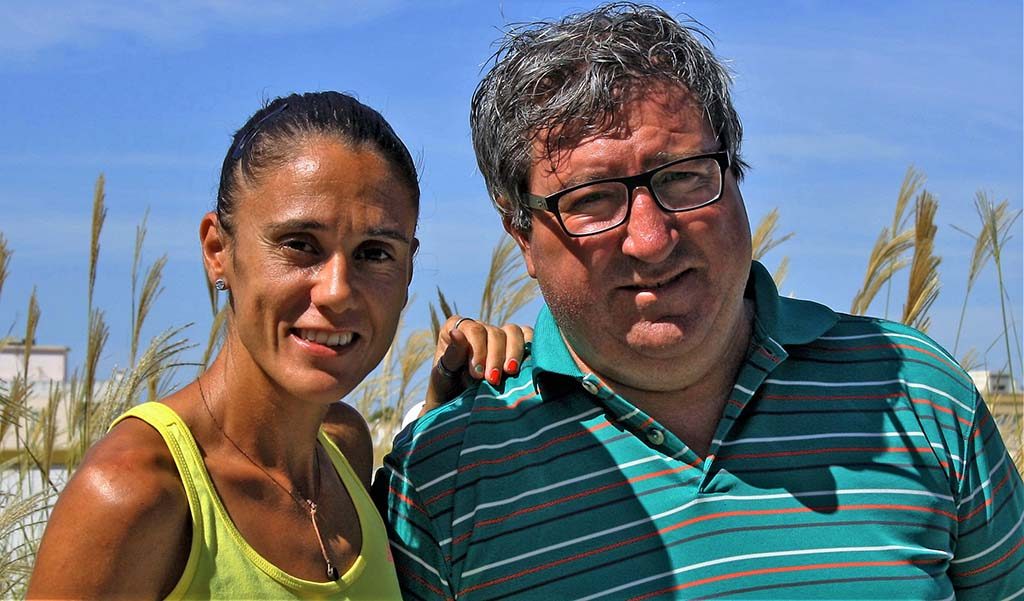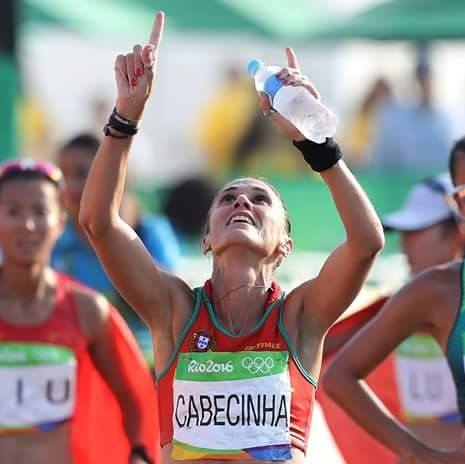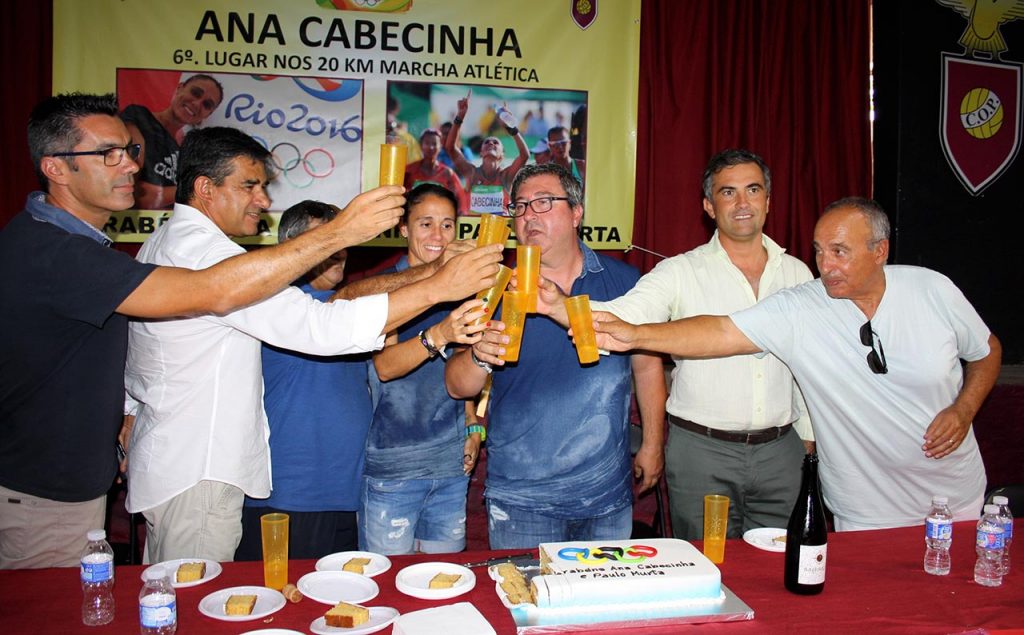 There are 3 to 5 hours of training a day, 7 days a week, practically all year round, to which you have to add time in competition and internships, whenever there are conditions to carry them out. It was with this recipe that coach Paulo Murta, from Clube Oriental de Pechão, cooked the champion Ana Cabecinha, the most outstanding Portuguese marcher today, and who intends to continue to apply, to promote many other promising young people who train at the club, many of whom already hold titles.
There are 3 to 5 hours of training a day, 7 days a week, practically all year round, to which you have to add time in competition and internships, whenever there are conditions to carry them out. It was with this recipe that coach Paulo Murta, from Clube Oriental de Pechão, cooked the champion Ana Cabecinha, the most outstanding Portuguese marcher today, and who intends to continue to apply, to promote many other promising young people who train at the club, many of whom already hold titles.
Basically, everything goes through effort and dedication, something Ana Cabecinha has shown since she started training, at age 11. But there is also a good dose of affection involved, which comes "from the people of Pechão, the county and the region", stressed the athlete and Paulo Murta, in a conversation with the Sul Informação.
«In sport, there is no luck, there is work. And we work hard to get lucky. There are many weeks, many hours a week, many kilometers covered. Ana makes about 7 kilometers a year, between running and walking. He trains very close to 50 weeks and has an average of 13 workouts per week. She is a professional athlete», illustrated Paulo Murta.
The current national champion (3 thousand and 10 thousand meters in Indoor Track and Outdoor Track) and holder of the national record of 20 kilometers walking, she recently returned from the Rio 2016 Olympic Games and brought an Olympic diploma in her luggage, the result of an excellent 6th place in the athletic walking test, the best result ever for Portugal in an Olympics, in this modality .

To get there, Ana Cabecinha had to dedicate herself deeply, face some setbacks and even suffer, but she doesn't regret it. “For me, the balance of these last four years can only be positive. A lot has changed, we started to work in a different way and the results are in sight. We were finalists in Worlds and Europeans, I was 4th at the 2015 Worlds and 6th at Rio 2016, I was champion of Portugal and broke records. All thanks to the team, because it wasn't just me», summarized the athlete.
“This Olympic cycle was different from the previous ones (Beijing 2008 and London 2012). After London, we thought that Ana's maturity and years of practice already forced us to be there in a totally different way. We evolved either in training itself, or with the creation of a multidisciplinary team, which has been working with us, something that until then existed little or nothing», according to Paulo Murta.
And that was noticed in the results. «Since 2012, Ana has not been in the top 10 only in a few races. In most of them she was in the top 8, which is considered a finalist», said the coach from Algarve.
For many, seeing an athlete from a small club in a village in Olhão achieve an exceptional result in the Olympics, can be strange. But, for marchers and coaches, what is not gained in terms of financial return, which would be possible through a link to a large club, is compensated by the involvement and support that comes from those closest to them, they too have a capital to have. in count.
«We had proposals over the years to go to FC Porto, Sporting and Benfica. It was always very thoughtful and I always refused. Pechão is the club of passion and I don't feel that because I'm linked to it, I don't have the same support that I would have in a big club», said Ana Cabecinha.

A conviction that is shared by one of the biggest names in Portuguese athletics. «In 2008, Rosa Mota was talking to me and even today she talks to me about it, saying that it doesn't matter to be in a big club. She was also always in a small club and did not fail to get what she got for it. He told me to always stay connected to my roots, where I felt good, and not go after the illusion of money and a big club. I never forgot the words she said to me», recalled the Algarvian marcher.
Last year, she met again with Rosa Mota, winner of the women's marathon at the Olympics in Seoul in 1988 and bronze at the OG in Los Angeles 1984, in the half-marathon in Quarteira. "He came to see me and said he was happy to see that I was still at the Oriental de Pechão," he added.
Also because the return, in affective terms, is quite large, when you represent a smaller club. «In 2008, we arrived in Lisbon at the same time as Nelson Évora, who had been Olympic champion in the triple jump. There were about 80 people there waiting for him, most of them friends. The next day we came to the Algarve and there were about 150 people waiting for us, who accompanied us to Pechão in celebration. The way it was affectionately received is priceless», considered Paulo Murta.
It is in this environment that Ana Cabecinha will try to prepare herself in the best possible way for the 2020 Olympic Games, where she believes she will be able to guarantee a medal she wants "more than anyone else".


















Comments